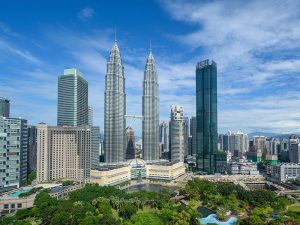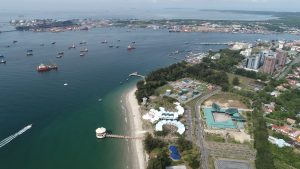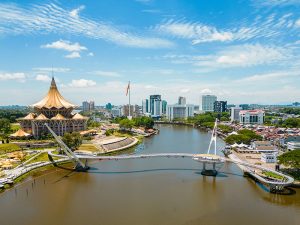Facebook and various large companies have recently given employees the option of working from home permanently. Whatsapp, Wechat, Zoom or Team calls feel like second nature as we get accustomed to the new way of life. Air travel, hotels, restaurants, theme parks to name just a few have become victims of this shift. Yet as this segment of the economy wanes, other unexplored or segments which previously fell by the wayside have started coming under the spotlight. My mate who runs the main baking shop in Penang tells me he has not seen such demand for his products since the baking craze in the 80s. People are literally lining to get into his shop. Local food suppliers & vegetable farmers are experiencing similar increased demands as limited border activities reduce imports. In the US, increasing demand for properties in smaller cities or towns has been reported as people see less need to stay near their work places in the cities and seek cheaper options in the suburbs.
As the World grapples with loss of income or diminished income, there is inevitably a search for more affordable options including migrating to countries like Malaysia (As a side note, for those who are applying for MM2H, Malaysia’s long stay visa, you don’t need to be in the country to submit your application. The application currently takes about 8 to 9 months to approve. I would therefore encourage early submission if you want to stay long term in Malaysia. This is because the Malaysian Immigration authorities do not encourage “visa runs” so it’s best to have this organised early.). Or the “work from anywhere” new norm has broaden options for intrepid travellers. Either way, for those who are in cash or are seeking a new life in a foreign land, there are undoubtedly bargains or affordable options (See: https://www.edgeprop.my/content/1618639/kl-ranked-second-best-city-world-expats) to be had in Malaysia. There is furthermore talk of reduced stamp duties and property gains tax. During the 2007 – 2008 global financial crisis, Malaysia temporarily suspended gains tax and this spurred record transactions. See https://www.theedgemarkets.com/article/cover-story-property-market-outlook-and-opportunities-times-uncertainty. If all this pans out, Malaysia’s property sector stands to gain.
With this backdrop, here’s my list of what a foreign purchaser should look out for when purchasing a property in the Malaysian secondary market. Instead of a full on legal commentary on the acquisition of properties by foreigners (I get it. Much as I am passionate about the legal details, if you ‘re just wanting to relocate to Malaysia, you’re not looking for the full lecture on Malaysian Property law. This is, of course, available by dropping me an email at [email protected]). The following is compiled from the questions most frequently posed to me by clients:

COSTS – Here are the estimated costs of acquisition to look at:
- Legal fees & disbursements for the purchase:
- Legal fees
- 1st RM500,000.00 – 1.0% (min of RM500.00) on the property’s market value
- Next RM500,000.00 – 0.8%.
- Next RM2,000,000.00 – 0.7%.
- Next RM2,000,000.00 – 0.6%.
- Next RM2,500,000.00 – 0.5%.
- Stamp Duty
- First RM100,000 : 1% on the property’s market value
- RM 100,001 to 500,000 : 2%
- RM 500,001 to RM1,000,000 : 3%
- RM1,000,001 and above : 4%
- Application fees for the foreigner’s state consent to purchase:
- For Penang residential property : RM10,000 (foreign individual) / RM20,000 (foreign company)
- For Penang commercial property : RM20,000 (foreign individual) / RM40,000 (foreign company)
- Levy payable on obtaining the foreigner’s state consent to purchase:
- For Penang landed property : 3% of purchase price
- For Penang strata property at
- RM1 million to RM1.5 million : 1.5% of purchase price
- Legal fees & disbursements for the loan:
- Legal fees
- 1st RM500,000.00 – 1.0% (min of RM500.00) on the loan amount
- Next RM500,000.00 – 8%.
- Next RM2,000,000.00 – 0.7%.
- Next RM2,000,000.00 – 0.6%.
- Next RM2,500,000.00 – 0.5%.
- Stamp duty
Stamp duty on the Facilities Agreement – 0.5% x loan amount + RM 10.00 per copy. - Estate agents fees:
- Up to 3% of the value of the property
- Note:
- The Penang practice is for the 3% to be split between the Purchaser & Vendor
- In Kuala Lumpur the practice is for the Vendor to bear.
- It’s advisable to clarify this from the outset.
The above cost calculations are a handful especially if an impromptu offer is expected. In such an instance, I normally use 10% as a rough guide for the above costs on top of the purchase price.
Do note that the above write up and cost calculation serves as a general quide. It is therefore advisable to consult your own lawyers prior to any major decisions as land laws vary from state to state in Malaysia, the title may have an unusual restriction, transfer fee or tax and may be updated from time to time. Should you have further clarifications, do drop me an email at [email protected].
Sam Choong
June 2020



